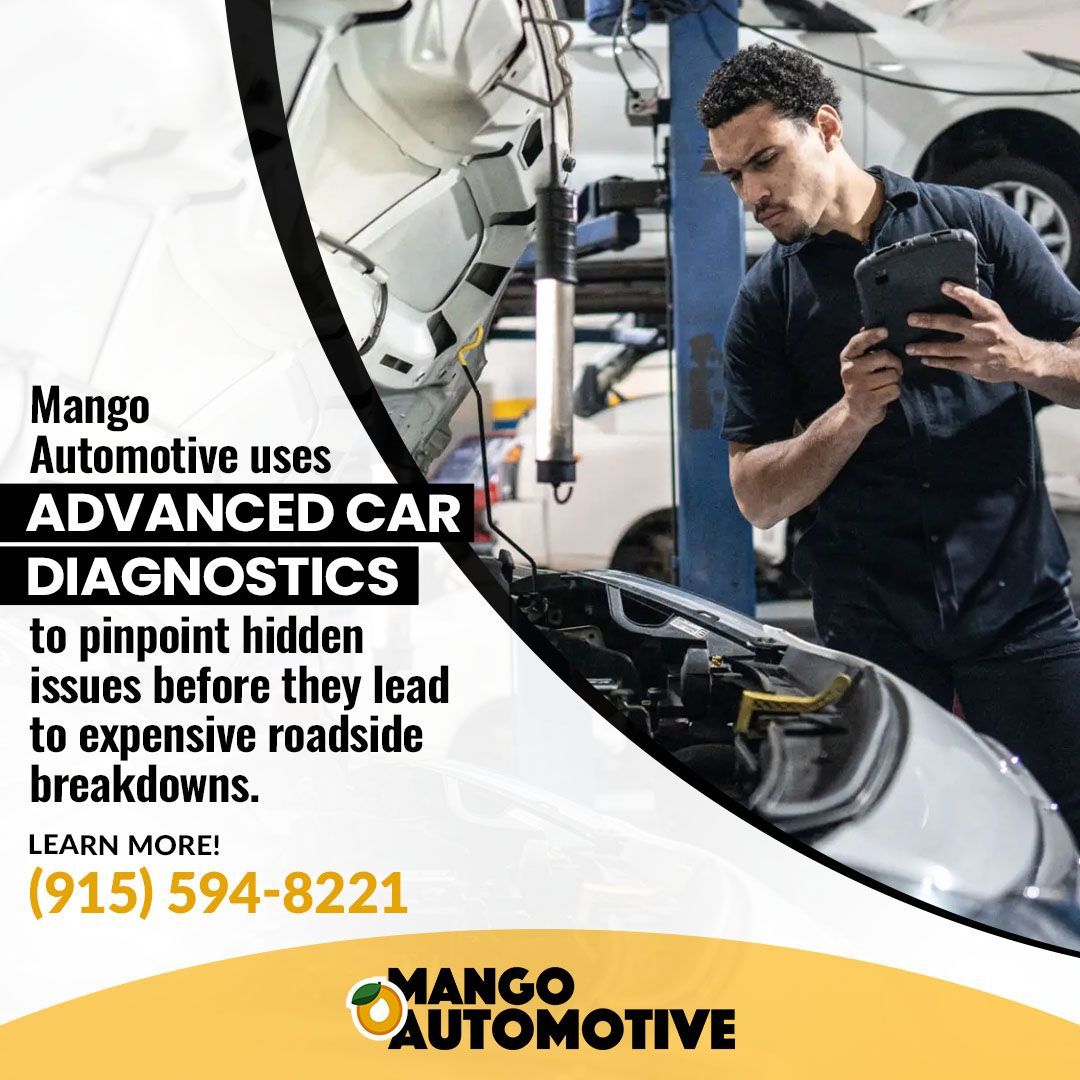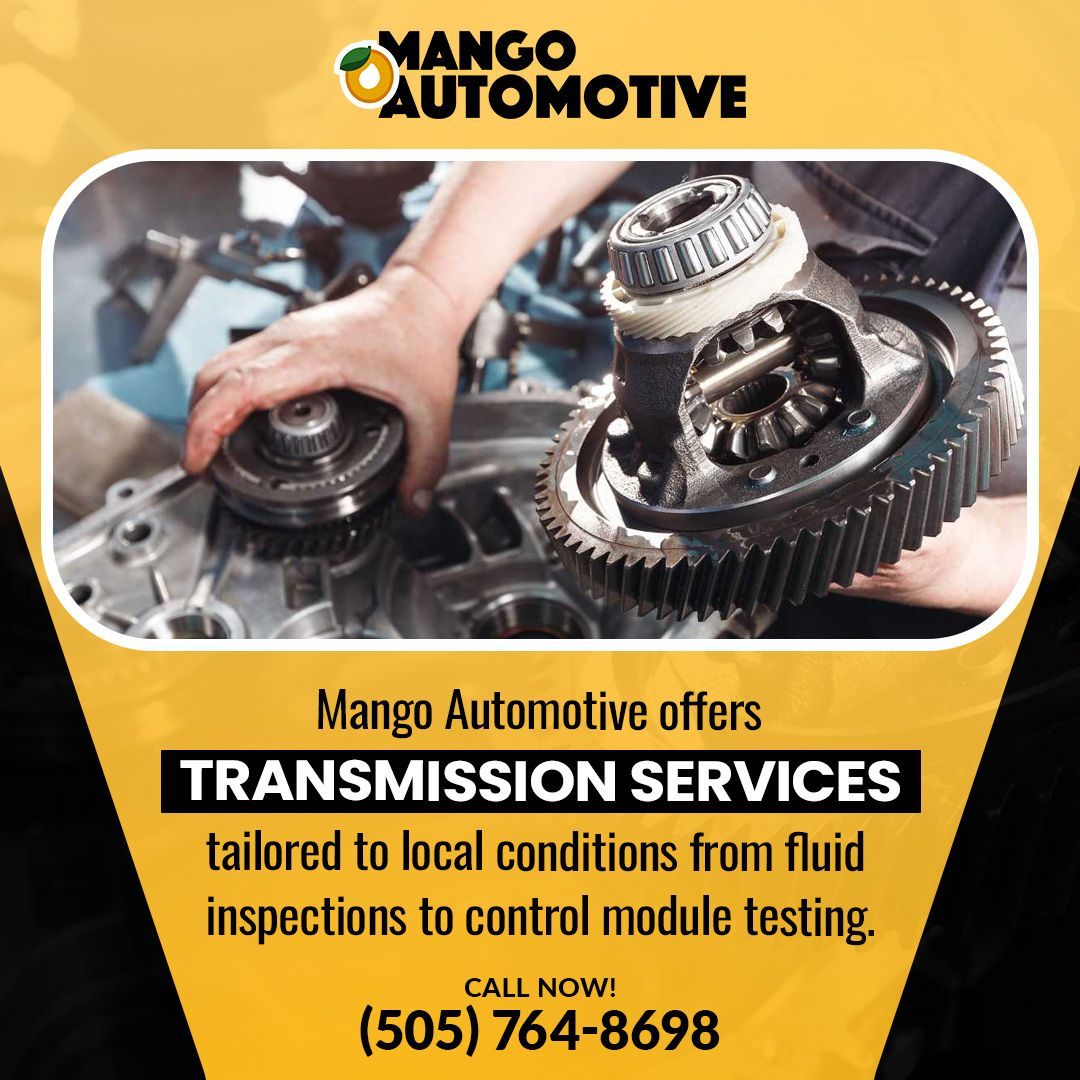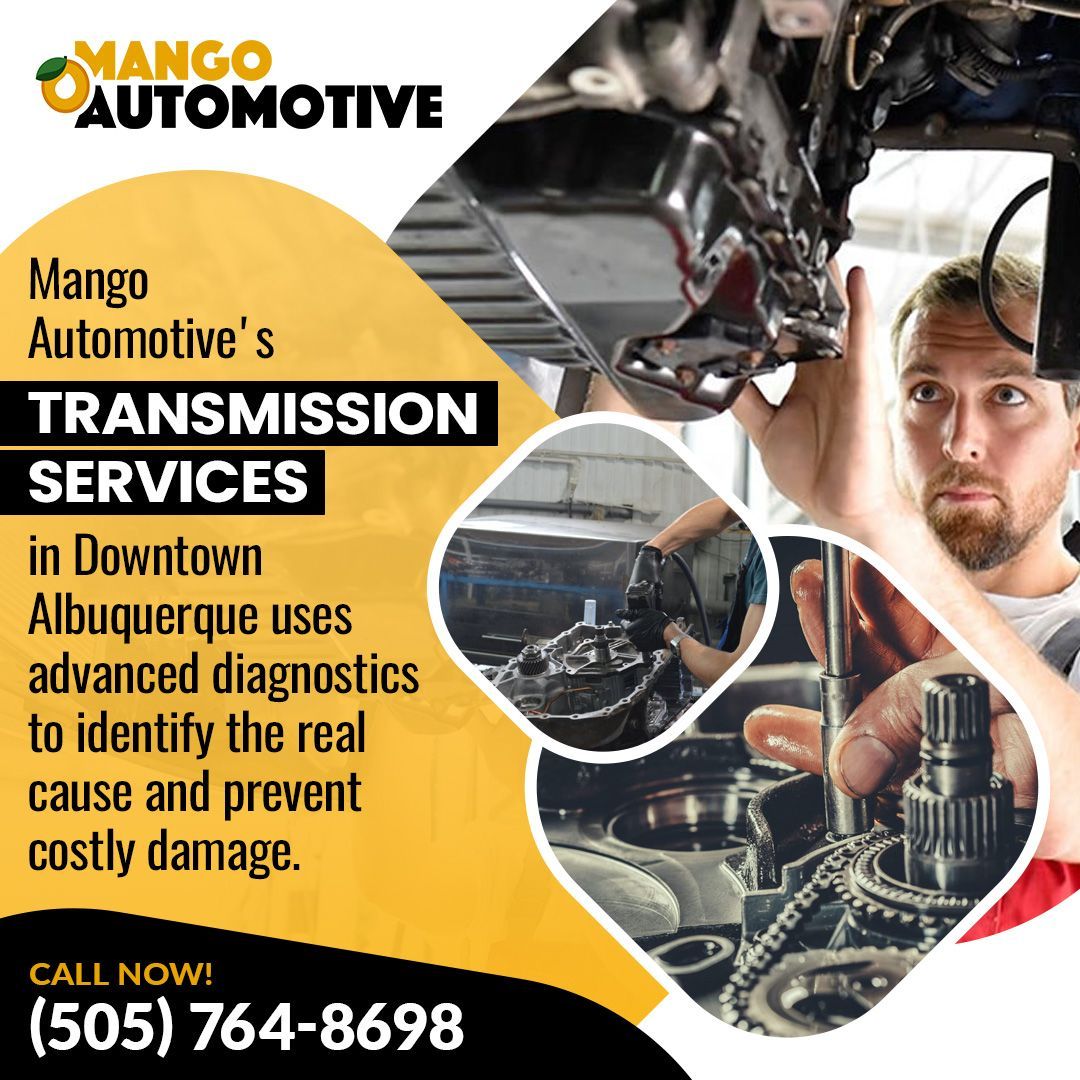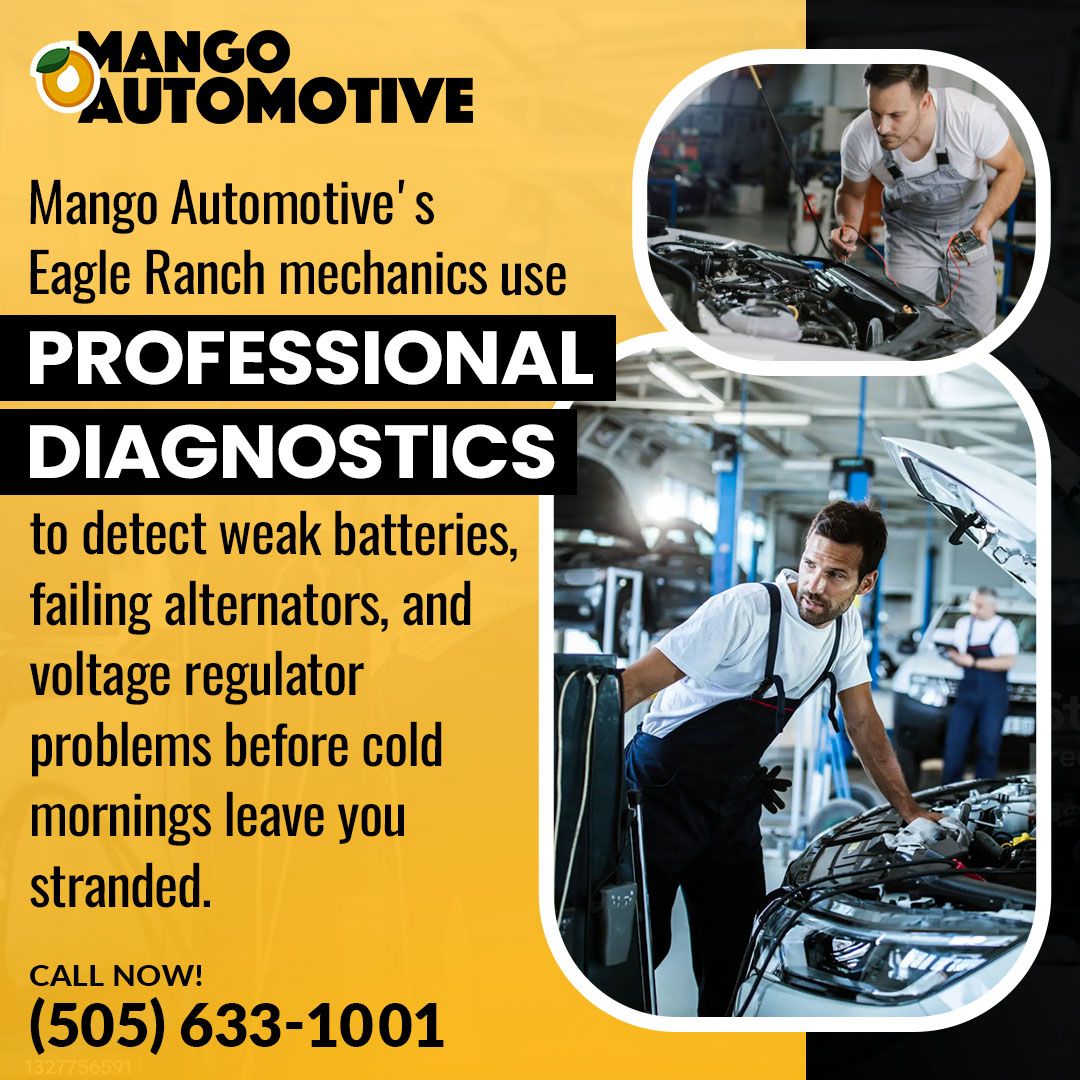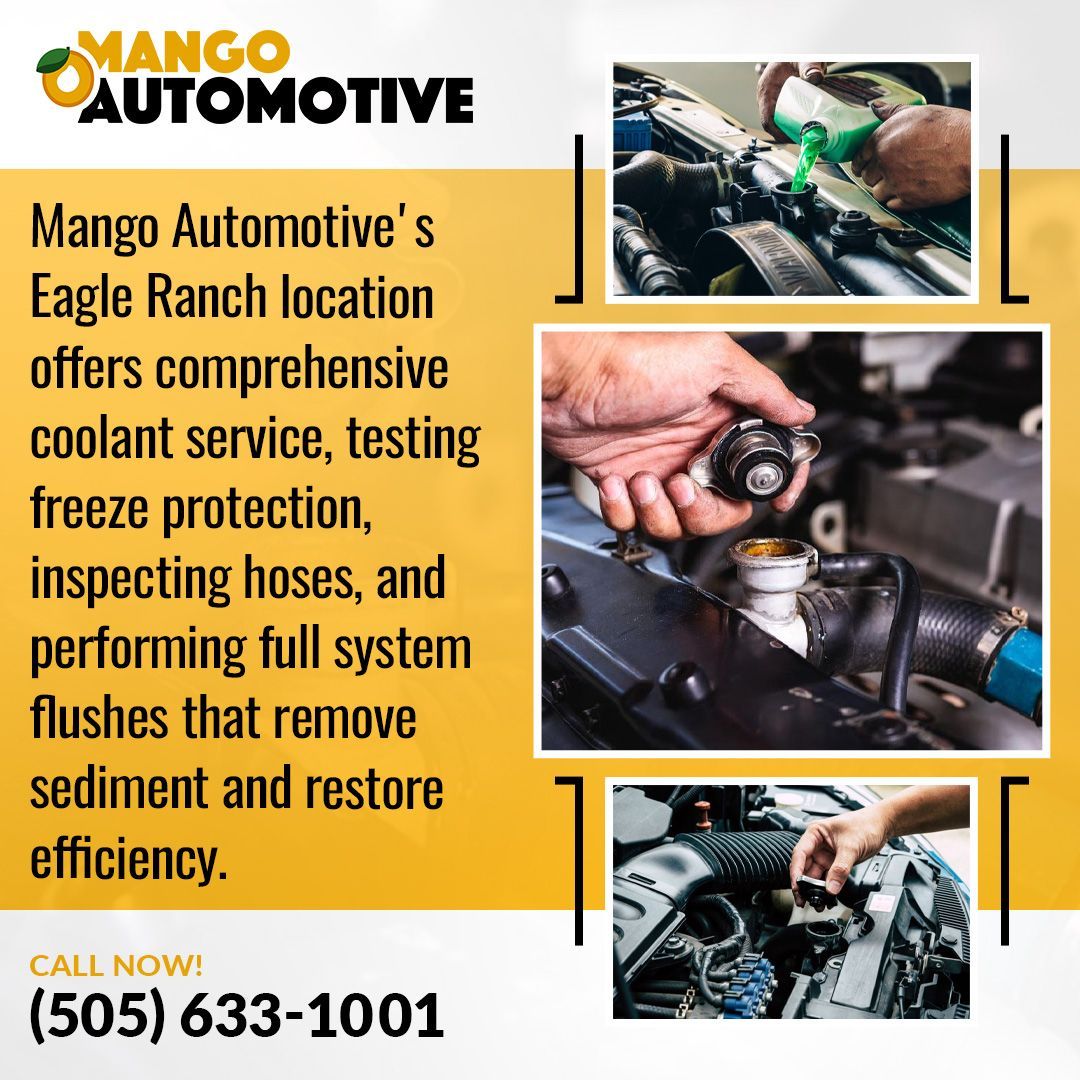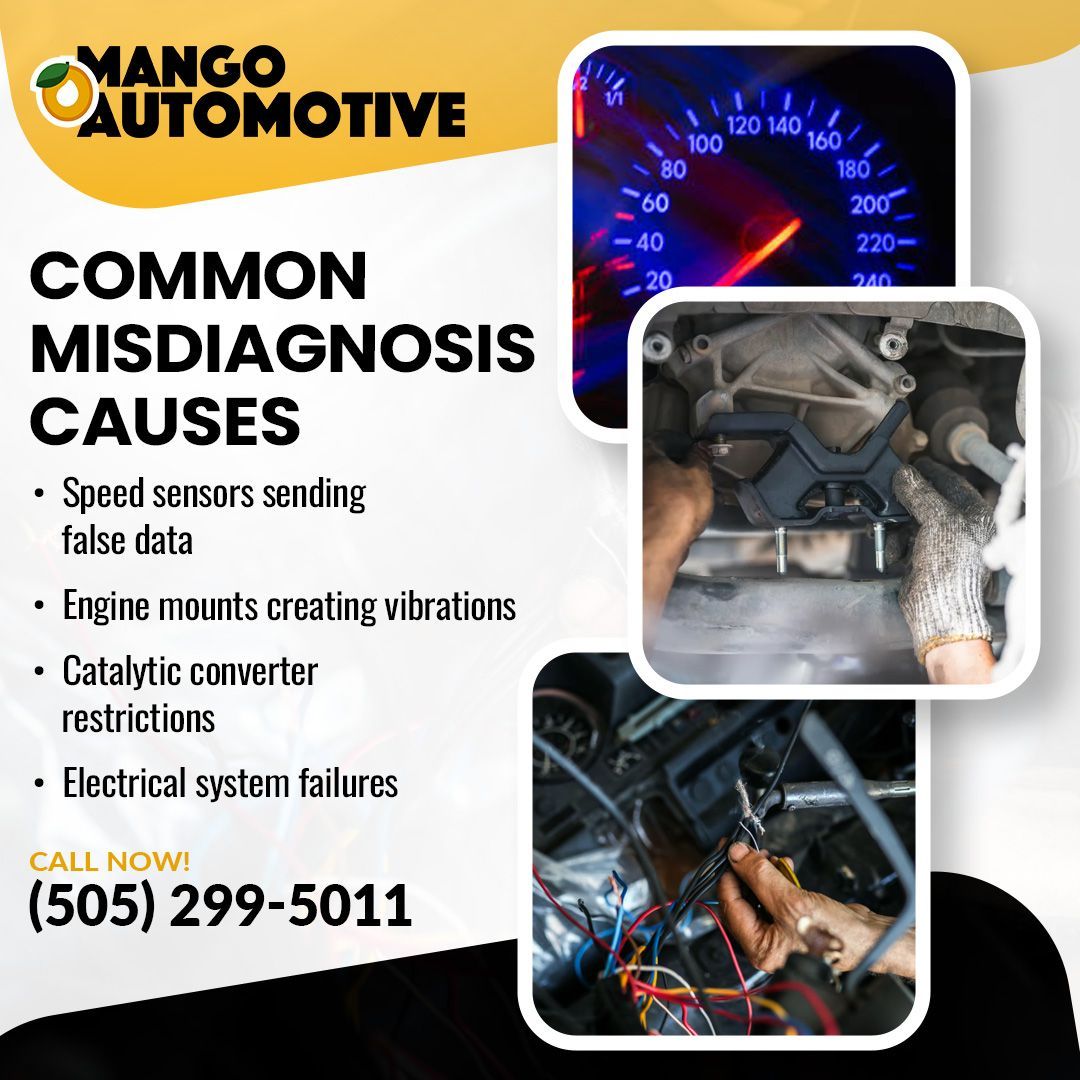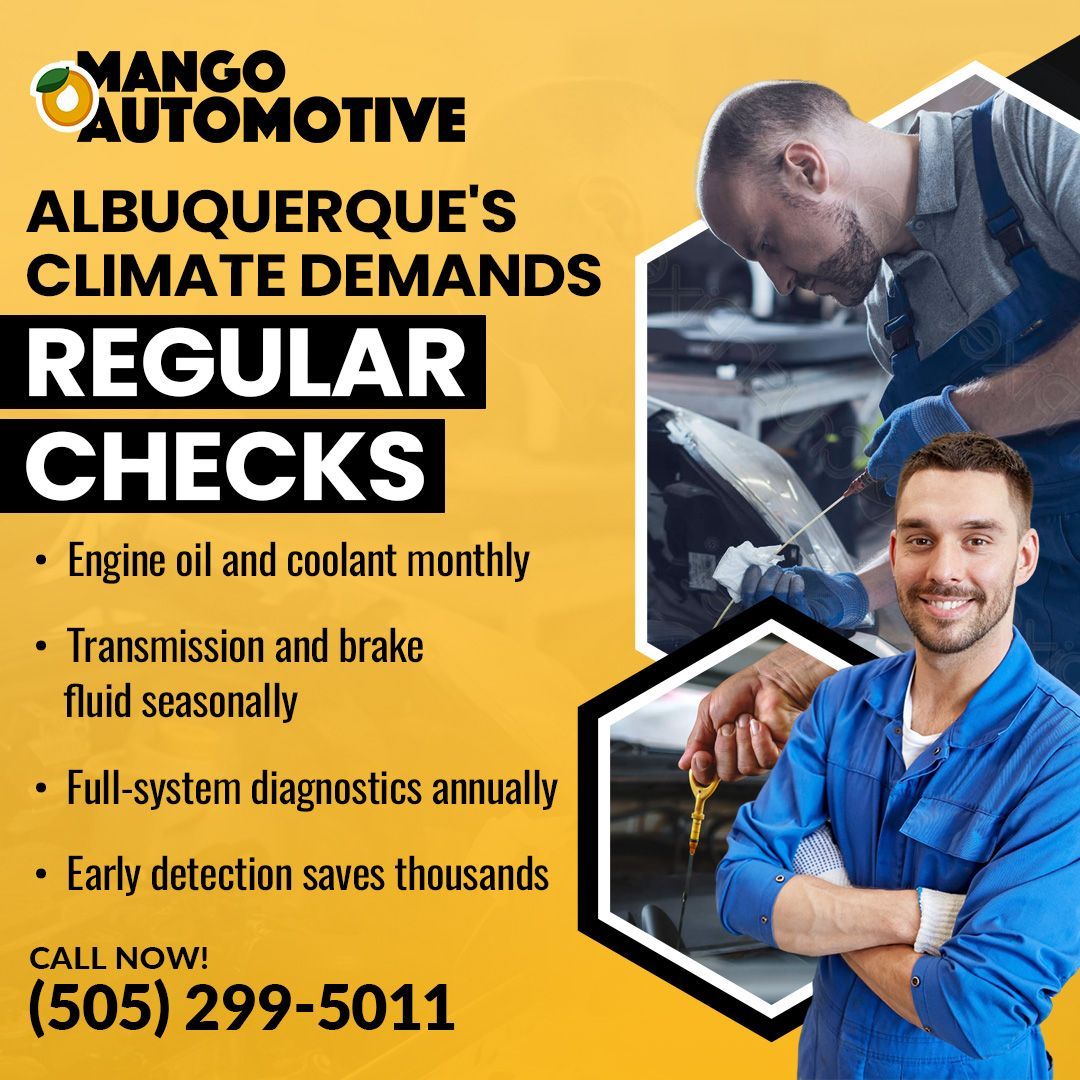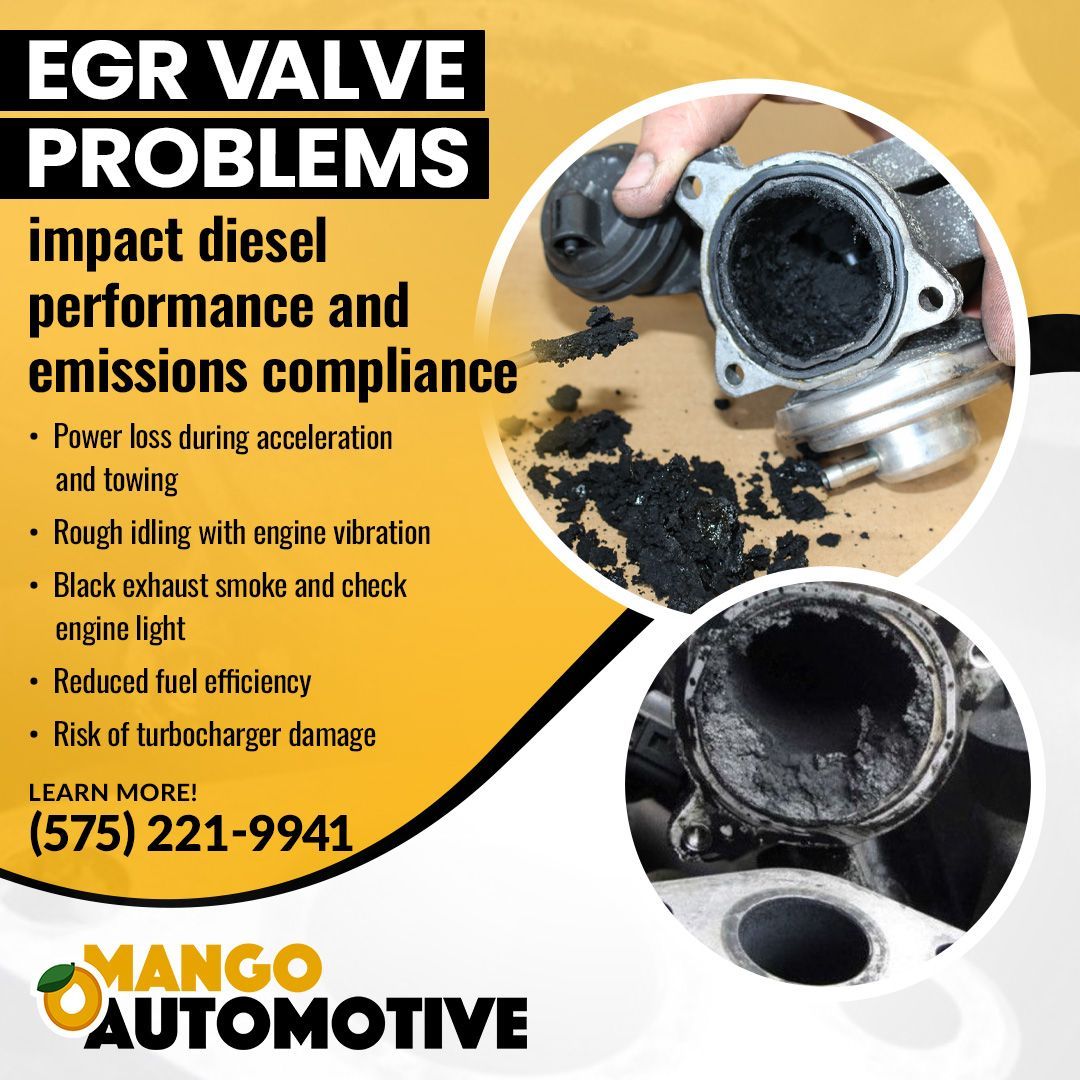A Must-Read Brake Inspection Checklist for Safe Driving from Auto Repair Experts
Brake safety is one of the most important factors in keeping your vehicle reliable on the road. Worn-out brake pads, low fluid levels, or damaged rotors can reduce stopping power and put you at risk. Addressing these automotive repairs early can keep your vehicle reliable in any driving condition.
At
Mango Automotive, we emphasize regular brake inspections to prevent accidents. Regular maintenance is not just about safety—it also extends the life of your braking system and improves overall vehicle performance. Whether you’re navigating Albuquerque’s busy streets or heading out on a long trip, a well-maintained braking system keeps you confident on the road.
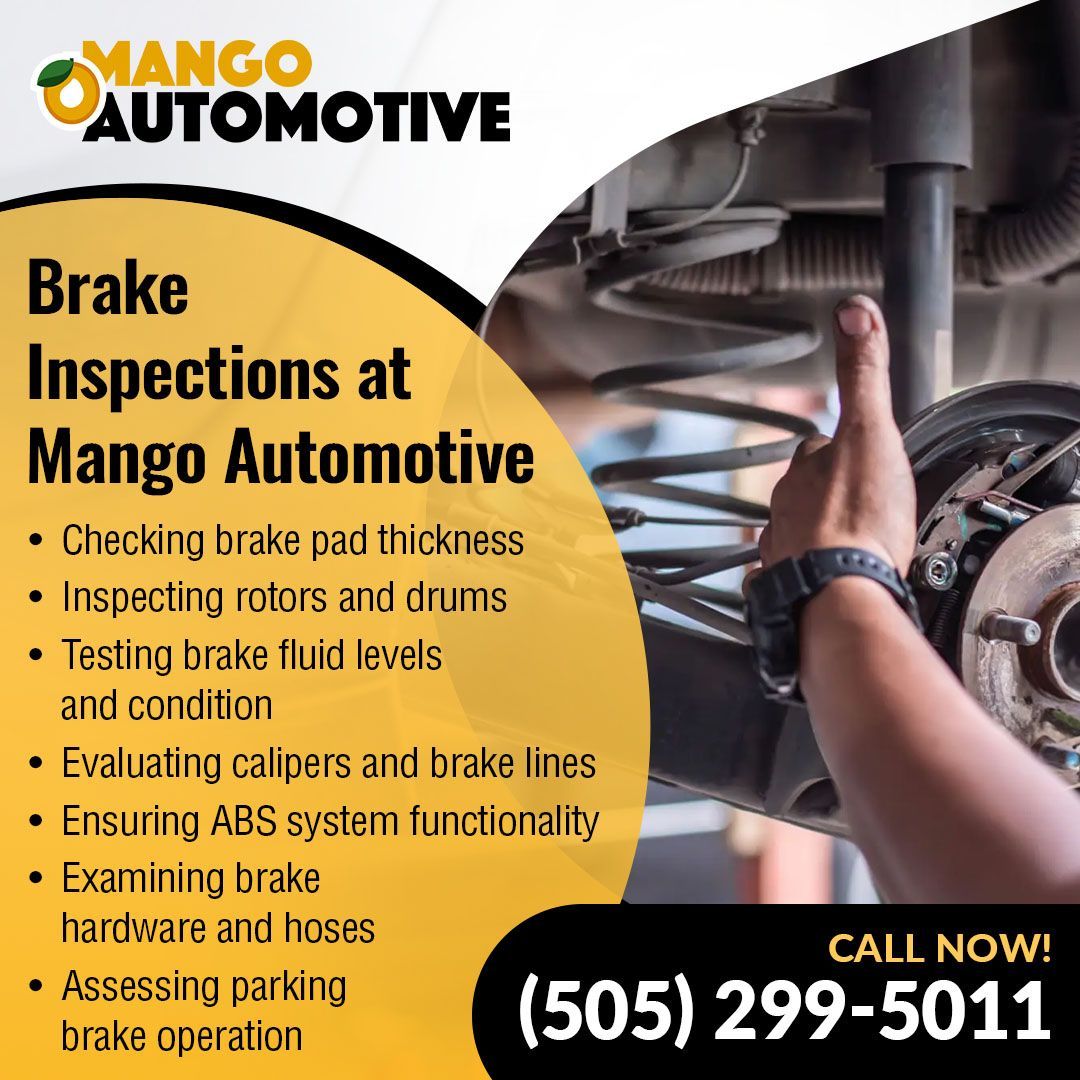
Why Regular Brake Inspections Matter
The Role of Brakes in Vehicle Safety
Brakes are the first line of defense in preventing accidents. A well-functioning braking system allows you to stop quickly and safely, especially in emergencies. Faulty brakes can cause longer stopping distances, reduced control, and an increased risk of collisions.
A complete braking system includes brake pads, rotors, calipers, brake fluid, and lines. If any component is worn or damaged, it can compromise performance.
How Routine Inspections Prevent Costly Repairs
Early detection of brake wear avoids expensive repairs and dangerous failures. Ignoring minor issues, like thin brake pads or a small fluid leak, can lead to severe damage, such as warped rotors or failing calipers. These repairs cost considerably more than routine maintenance.
A brake inspection can reveal signs of trouble, including squeaking noises, vibrations, or a soft brake pedal. Addressing these problems at an
auto repair shop near you can prevent further damage. Regular maintenance also extends the life of your braking system and reduces long-term repair costs.
Why Mango Automotive Prioritizes Thorough Brake Checks
At Mango Automotive, we understand the importance of a well-maintained braking system for the safety of Albuquerque drivers who rely on their vehicles every day. We perform detailed brake inspections to keep your vehicle safe on the road.
Our experienced auto repair technicians check brake pad thickness, rotor condition, fluid levels, and overall system performance. If we detect any issues, we provide clear recommendations and quality repairs. Whether you need a routine check or a complete brake service, our team is committed to delivering reliable, professional automotive repair.
Brake Inspection Checklist
Brake Pads and Shoes
Brake pads and shoes are the key components that create the friction needed to stop a vehicle. They press against the rotors or drums to slow the car down. They wear down with use and need to be replaced to maintain braking efficiency.
Checking for Wear and Proper Thickness
Brake pads and shoes should always meet the manufacturer's thickness recommendations. If they are too thin, they won’t provide enough friction to stop your vehicle safely. At Mango Automotive, our auto repair technicians measure brake pad thickness and inspect for uneven wear, cracks, or damage.
A clear sign of worn brake pads is a squeaking or grinding noise when braking. If these signs are left unchecked, the metal backing of the pads can come in contact with the rotors and cause severe damage.
How Worn Pads Affect Stopping Power
Thin or damaged brake pads reduce stopping power and increase the risk of accidents. As pads wear down, they generate less friction, leading to longer stopping distances. This is especially dangerous in wet or high-traffic conditions where quick braking is essential.
Unevenly worn pads can cause vibrations or pulling to one side when braking. This affects handling and puts extra stress on other brake components.
When Replacement Is Recommended
Brake pads should typically be replaced when they reach 3mm thickness or less. However, replacement may be needed sooner if there are signs of uneven wear, cracks, or noises when braking.
At Mango Automotive, we check your brake pads during routine inspections and provide honest recommendations based on their condition. If replacement is needed, our Albuquerque automotive repair shop uses high-quality parts to provide reliable braking and long-lasting performance.
Brake Rotors and Drums
Warped or worn rotors and drums reduce braking efficiency and cause vibrations or noises when stopping. Warping occurs due to excessive heat buildup, while scoring happens when brake pads wear down completely, allowing metal-to-metal contact. Common signs of rotor or drum issues include:
A pulsing sensation in the brake pedal- A squealing or grinding noise when braking
- Visible grooves or rough spots on the rotor surface
- Increased stopping distance
Ignoring these warning signs can lead to further brake system damage and higher repair costs.
How Smooth Rotors Enhance Braking Efficiency
A smooth rotor surface allows brake pads to grip evenly and provides consistent braking power. If rotors or drums develop rough spots or grooves, they reduce contact with the brake pads, leading to weaker and less responsive braking. Uneven rotors can also cause excessive vibration, which affects handling and puts stress on suspension components.
Professional Resurfacing vs. Replacement
Resurfacing removes minor imperfections from rotors and drums, extending their lifespan. This process smooths out grooves and high spots, restoring even contact with brake pads. However, if the rotor thickness falls below the manufacturer’s minimum specifications, replacement is the safer option.
At Mango Automotive, we inspect rotors and drums for wear and determine whether resurfacing is possible or if a full replacement is needed. We only recommend the best option to keep your vehicle braking efficiently.
Brake Fluid Levels and Condition
Brake fluid transfers force from the pedal to the braking system, ensuring smooth and reliable stopping power. Low or dirty fluid can reduce braking efficiency and increase stopping distance. Unlike other fluids, brake fluid absorbs moisture over time, which can lead to internal corrosion and component failure.
How Contamination Affects Braking Performance
Contaminated brake fluid can cause a soft or spongy pedal, reduced braking power, and potential brake failure. Moisture in the fluid lowers its boiling point, leading to brake fade during hard braking. Dirt and debris can also clog brake lines and damage seals, causing expensive repairs.
Recommended Service Intervals for Fluid Replacement
Most manufacturers recommend changing brake fluid every two to three years or as specified in your owner’s manual. However, frequent stop-and-go driving, towing, or extreme weather conditions may require more frequent service.
At Mango Automotive, we check fluid levels and conditions during every brake inspection. If the fluid appears dark or contaminated, our Albuquerque automotive repair technicians recommend a full system flush to restore braking performance and protect critical components.
Brake Lines and Hoses
Brake lines and hoses carry brake fluid under high pressure, making them essential for safe and responsive braking. These components are exposed to constant pressure, temperature changes, and road debris, which can lead to cracks, leaks, or weak spots over time. Rubber hoses can dry out and crack, while metal brake lines may develop rust or corrosion, especially in areas with high humidity or road salt exposure.
During a brake inspection at Mango Automotive, we check for visible cracks, leaks, bulges, and soft spots in the hoses and lines. Any fluid seepage or corrosion can indicate a potential failure, requiring immediate attention.
How Damaged Lines Impact Braking Response
A damaged brake line reduces hydraulic pressure, leading to poor braking performance or even total brake failure. Fluid leakage from a cracked or corroded line can make the brake pedal feel soft or spongy, requiring greater effort to stop the vehicle. Additionally, air entering the system can decrease braking effectiveness, causing a delay between pressing the pedal and the brakes engaging.
A sudden loss of braking power may occur if a brake line bursts while you're driving. This is dangerous at high speeds or in emergency braking situations. That’s why catching early signs of wear and damage is essential for driver and passenger safety.
Preventing Failures with Timely Replacements
Routine inspections and timely replacements prevent brake failures and costly repairs. At Mango Automotive, we recommend replacing brake hoses and lines at the first sign of deterioration. For drivers in areas with extreme temperatures or road salt exposure, checking the brake lines more frequently can help prevent unexpected failures.
In some cases, upgrading to stainless steel brake lines can improve durability and braking response, particularly for high-performance or heavy-duty vehicles. Whether it's standard maintenance or a complete brake line replacement, our Albuquerque automotive repair team makes sure that every component is in top condition to provide safe and reliable braking.
Brake Pedal and Performance
The brake pedal should feel firm and responsive when pressed. A properly functioning brake system allows the pedal to engage smoothly without excessive travel or resistance. If the pedal feels too soft, too hard, or inconsistent, it could indicate underlying issues within the braking system.
Common warning signs include a brake pedal that sinks too easily, a hard-to-press pedal, or a pulsating pedal.
Causes of a Spongy or Unresponsive Brake Pedal
A spongy or unresponsive brake pedal is often linked to air bubbles in the brake fluid or fluid contamination. Air in the brake lines reduces hydraulic pressure, making the pedal feel soft or requiring more effort to stop the vehicle. Low brake fluid levels or worn-out brake components can also contribute to poor pedal response. Other causes include worn brake pads, leaking brake fluid, and failing master cylinders.
Addressing Delayed or Uneven Braking
Delayed or uneven braking can make it difficult to stop safely, especially in emergency situations. If the vehicle pulls to one side when braking, it may indicate uneven brake pad wear, a sticking caliper, or issues with the brake lines.
At Mango Automotive, we diagnose and fix these issues by inspecting the entire brake system, flushing contaminated fluid, replacing worn components, and ensuring all parts work together for smooth, reliable braking. If you notice any changes in your brake pedal’s response, a professional inspection at our auto repair shop can prevent bigger problems down the road.
Warning Signs That Require Immediate Attention
Unusual Noises During Braking
Strange sounds when braking often signal worn or damaged components. If you hear squeaking, grinding, or clicking noises, it’s important to have your brakes checked immediately.
Squeaking or squealing: Usually caused by worn brake pads. Many pads have built-in wear indicators that create a high-pitched sound to alert you when replacement is needed.
Grinding: This suggests the brake pads are completely worn down, allowing metal-to-metal contact between the pads and rotors. Driving in this condition can cause severe rotor damage and increase repair costs.
Clicking:
Loose or broken hardware, such as worn caliper mounts, may cause clicking sounds when braking.
If your brakes are making any of these noises, bring your vehicle to Mango Automotive. Our
auto repair technicians can inspect the system, replace worn parts, and restore safe braking performance.
Steering Pulls When Braking
If your vehicle pulls to one side while braking, it may indicate uneven brake wear or a problem with the braking system. This issue can make it harder to control the vehicle, especially at higher speeds. Common causes include:
Uneven brake pad wear:
Pads wearing down at different rates can create an imbalance in braking force.
Stuck caliper or brake hose issues: A sticking caliper or a collapsed brake hose can cause one brake to engage more than the other.
Uneven rotor surfaces: Warped or damaged rotors can lead to inconsistent braking pressure.
Ignoring this issue can damage the brake system further and reduce stopping power. At Mango Automotive, we thoroughly inspect the brake components and provide necessary auto repairs in Albuquerque to ensure smooth, even stopping power for safe driving.
Dashboard Brake Warning Light
A brake warning light signals a problem that needs immediate attention. If this light appears on your dashboard, it could be due to:
Low brake fluid: A drop in fluid levels may suggest a leak or excessive brake pad wear.
Worn brake pads: Some vehicles have sensors that trigger the light when the pads are too thin.
ABS or master cylinder issues: A malfunction in the anti-lock braking system (ABS) or master cylinder can activate the warning light.
If the brake warning light stays on, don’t ignore it. While some dashboard lights are triggered by minor issues, brake system problems can quickly worsen. Schedule an inspection at Mango Automotive, your trusted shop for auto repairs in Albuquerque, to pinpoint the cause and prevent safety risks.
Vibrations or Shaking While Braking
If you feel shaking or vibrations when braking, your rotors may be warped or uneven. This can affect braking efficiency and lead to longer stopping distances. Warped rotors, uneven rotor wear, and loose or misaligned components are the main causes of vibrations.
Ignoring vibrations can lead to costly repairs. Uneven braking forces can strain other components, such as suspension and tires. At Mango Automotive, our automotive repair technicians inspect and resurface or replace rotors as needed to restore smooth, responsive braking.
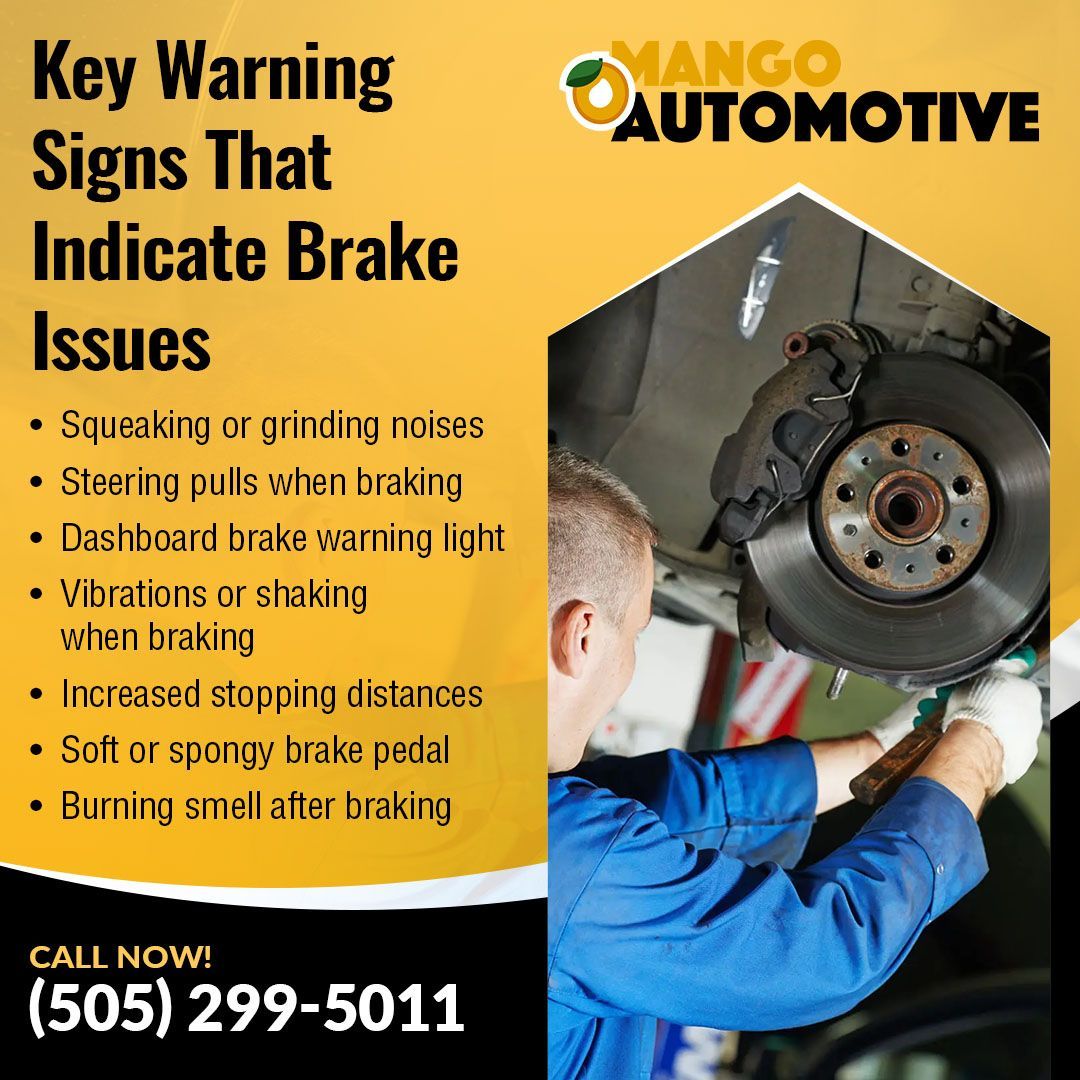
Mango Automotive: Your Partner in Brake Safety
Expertise in Albuquerque Automotive Repair
Mango Automotive provides trusted brake inspections and auto repairs in Albuquerque. With years of experience in the industry, we diagnose and fix brake issues for all makes and models. Whether you need routine maintenance or a full brake system overhaul, our automotive repair team ensures reliable performance and safety.
Certified Technicians and Advanced Diagnostic Tools
Our certified technicians use the latest diagnostic equipment to assess brake components with precision. From measuring rotor thickness to testing brake fluid condition, we follow a thorough process to detect potential issues before they become major problems. If repairs are needed, our auto repair shop uses high-quality parts to restore your vehicle’s braking efficiency.
Customer-focused Service with Transparent Recommendations
We prioritize honest communication and clear recommendations. After a brake inspection, we explain our findings in detail and provide service options that match your needs and budget. We never push unnecessary repairs—only what’s essential for your safety.
At Mango Automotive, we’re committed to providing top-quality auto repairs in Albuquerque. If you need a professional brake inspection, visit our auto repair shop today.
Reliable Repairs Backed by a 60-Month/60,000-Mile Warranty
We stand behind our repairs with an unmatched 60-month/60,000-mile warranty. This includes 36 months/36,000 miles of nationwide coverage plus an additional 24 months/24,000 miles exclusively at Mango Automotive. Our extended warranty ensures you can drive with confidence, knowing your brakes are protected by expert care.
Keeping Your Brakes in Top Condition
Routine brake maintenance is vital for your safety and your vehicle’s performance. Worn-out components, low fluid levels, or damaged parts can increase stopping distances and reduce control. Taking care of these problems promptly helps avoid expensive repairs down the road while maintaining a smooth, dependable braking experience.
Booking a brake inspection with Mango Automotive is a smart way to keep your vehicle safe on the road. Our certified technicians perform detailed inspections, offer honest recommendations, and deliver expert service to meet your needs. We are dedicated to providing quality auto repairs in Albuquerque with transparency and care.
Don’t wait until brake problems put you at risk. Schedule a brake inspection with Mango Automotive today. Our expert technicians are ready to keep your vehicle running safely. Call us at (505) 299-5011 or visit our shop for trusted Albuquerque automotive repair services.
